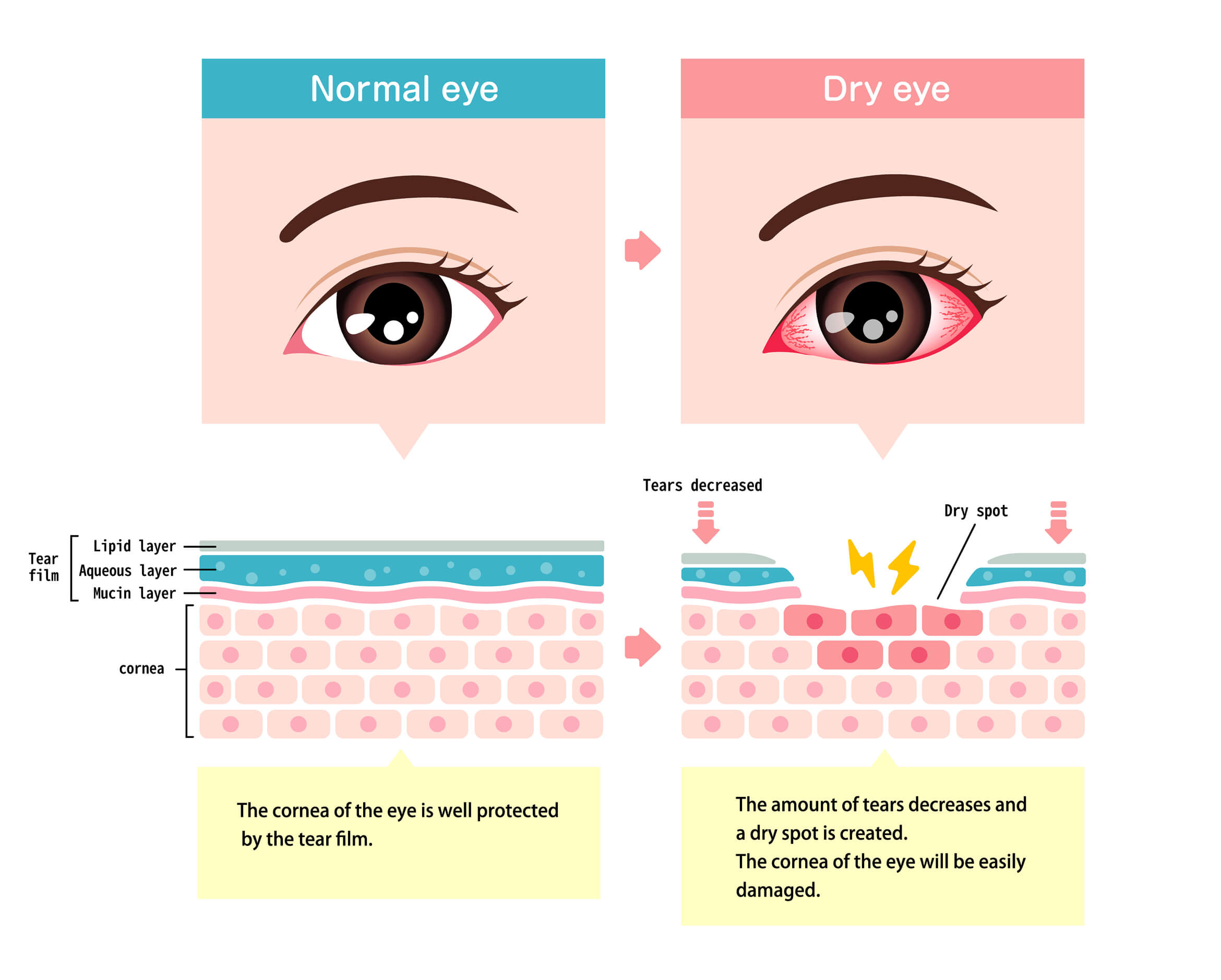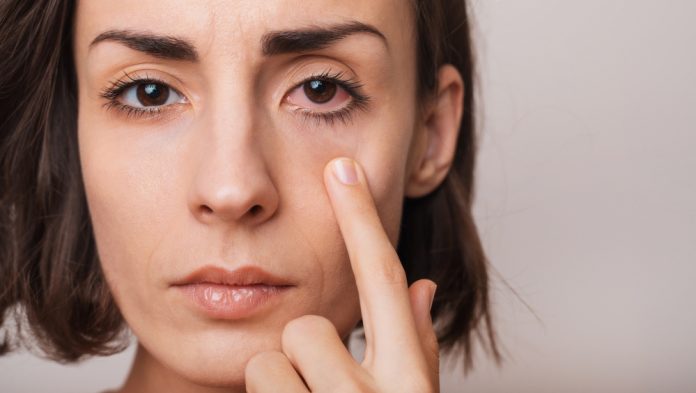Here are some tips by Dr. Smit M Bavariya, to ease your discomfort
Dry Eye Disease (DED) has emerged as a significant health concern affecting a large segment of the population across various age groups in India. With symptoms ranging from dryness and burning sensations to blurred vision and eye fatigue, DED poses challenges in daily activities and productivity. Understanding its causes and adopting preventive measures are crucial steps in managing this condition effectively.
Dr. Smit M Bavariya, Cataract Surgeon at Dr. Agarwal’s Eye Hospital says that he has witnessed the increasing prevalence of Dry Eye Disease among patients. He says, “It is s more than just occasional discomfort; it can significantly impact quality of life. With the prevalence projected to increase in the coming years, it’s crucial for both healthcare professionals and the public to prioritise education and proactive management strategies to mitigate its effects. It’s imperative for individuals to be aware of the contributing factors and incorporate preventive measures into their lifestyle to alleviate discomfort and maintain ocular health.”
He further shared causes, valuable tips for the treatment and management of Dry Eye Disease, and steps for people with prolonged screen use:
Causes of Dry Eye Disease
The causes of DED are multifaceted, with numerous risk factors associated, including local ocular factors, systemic diseases, sociodemographic factors, environmental conditions, and iatrogenic causes such as medications or surgeries.
1 Systemic Conditions: Diabetes mellitus, hypertension, rosacea or eczema around the eyelids, Sjogren syndrome, autoimmune or connective tissue disorders such as rheumatoid arthritis and lupus, and thyroid disease are contributing factors.
2 Environmental Factors: Pollution, low humidity, windy climates, chemical fumes, etc., exacerbate symptoms.
3 Prolonged Use of Screens: Decreased blink rate with incomplete blinks due to prolonged screen use results in fatigue of ciliary muscles inside the eye. The use of air conditioning or a fan exacerbates the symptoms. Surprisingly, the light emitted from screens does not cause any significant adverse effects. Impaired sleep patterns due to stress and poor nutrition are also contributing factors to DED.

Treatment and Management
1 Hot Compression and Eyelid Massage: Applying hot compresses to the eyelids can help to unclog blocked oil glands and improve the quality of the tear film. This can be done by soaking a clean cloth in warm water, wringing out the excess water, and placing it over closed eyelids for 5-10 minutes. Gently massaging the eyelids afterward can help to express any trapped oils, further improving tear distribution and reducing discomfort.
2 Ocular Hygiene: Good ocular hygiene is essential for managing dry eye symptoms and preventing further irritation and inflammation. This includes regularly cleaning the eyelids and lashes with a gentle cleanser to remove debris, bacteria, and excess oil. Using a warm, damp washcloth or commercial eyelid cleanser can help maintain proper hygiene and reduce the risk of complications.
3 Diet and Sleep Improvement: A balanced diet rich in omega-3 fatty acids, antioxidants, and vitamins A, C, and E can support overall eye health and reduce inflammation associated with dry eyes. Foods such as fish, nuts, seeds, leafy greens, and fruits are beneficial for maintaining healthy tear production and quality. Adequate sleep is also crucial for eye health, as it allows the eyes to rest and replenish moisture levels naturally.
4 Regular Screen Breaks: Prolonged screen time can exacerbate dry eye symptoms by reducing blink rates and increasing visual strain. To alleviate this, it’s essential to take regular breaks from screens. Additionally, consciously blinking more frequently can help to lubricate the eyes and prevent dryness.
5 Environmental Risk Reduction: Environmental factors such as pollution, low humidity, and exposure to air conditioning or heating systems can worsen dry eye symptoms. Taking steps to reduce exposure to these factors, such as using a humidifier to add moisture to the air, wearing wrap-around sunglasses to protect against wind and dust, and avoiding smoky or heavily polluted environments, can help alleviate symptoms and improve comfort.
6 Treatment of Systemic Conditions: Addressing underlying systemic conditions like diabetes, autoimmune disorders, and thyroid disease is essential in managing Dry Eye Disease. Managing these conditions effectively through medication, lifestyle changes, or other therapies can help reduce inflammation and improve tear production, thereby alleviating dry eye symptoms.
7 Consider Ocular Surgical Procedures: In severe cases of dry eye that do not respond to conservative treatments, ocular surgical procedures may be considered. These may include punctal plugs to block tear drainage, meibomian gland expression to improve oil flow, or even surgical correction of eyelid abnormalities.
Steps for People with Prolonged Screen Use
Follow the 20-20-20 Rule:
1 Every 20 minutes of screen use, take a 20-second break.
2 Look at any object more than 20 feet away to relax the ciliary muscles inside the eye.
3 Blink often to refresh your eyes and help produce tears.
4 Take regular breaks from your computer screen.
Your eyes deserve a break
Dry Eye Disease encompasses various factors including environmental conditions, systemic diseases, and prolonged screen use, all contributing to tear film instability and ocular surface inflammation. Alongside conventional treatments like hot compressions and ocular hygiene, lifestyle modifications such as regular breaks from screens and maintaining proper hydration levels are essential in managing symptoms effectively. By addressing both the underlying causes and symptoms, individuals can experience relief and improve their overall eye health.








